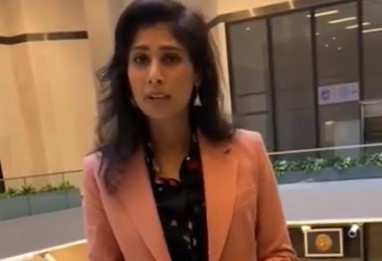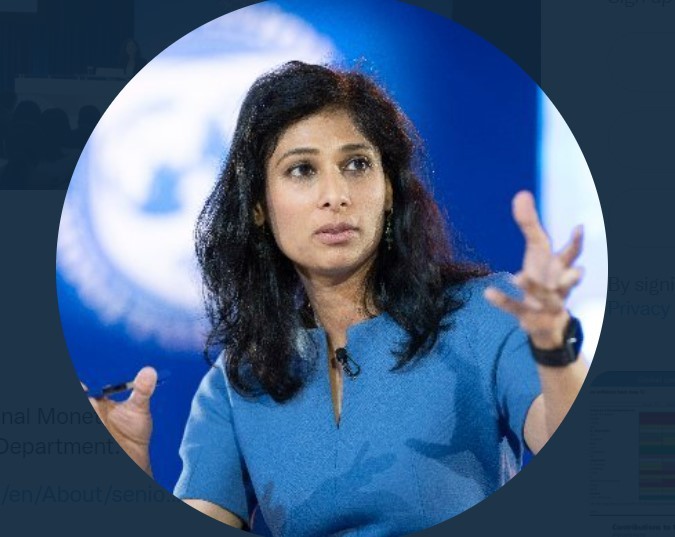The International Monetary Fund (IMF) head economist Gita Gopinath suggested on Wednesday that rather than banning cryptocurrencies, developing economies should regulate them.
Gopinath, addressing at a National Council of Applied Economic Research (NCAER) event, asked for a global policy on the matter to be implemented immediately.
A clutch of regulators around the world are struggling with how to classify virtual currencies such as bitcoin and how to regulate them, with some going as far as to call them illegal.
Asia’s third-largest economy, has been debating a nationwide tax on crypto-currencies and has also said that it may even consider a ban. The Reserve Bank of India has been actively monitoring developments around bitcoin amid concerns that cryptocurrency is being used for illegal activities such as money laundering and tax evasion.
Gita Gopinath IMF Chief Economist says Cryptos are proving to be a challenge for developing nations

She went on to suggest that cryptos are proving to be a challenge for emerging markets, and that strict regulation is urgently needed.
However, Geeta Gopinath pointed out that, because of their decentralised character, prohibiting digital currencies would have practical consequences.
“Regulating crypto assets and currencies is crucial, especially for emerging and developing economies,” the IMF chief economist said during an NCAER lecture on “Global Recovery and Policy Challenges in 2022.”
“Banning them may not work because crypto exchanges are located offshore, making it easier for an individual to trade in them despite the ban,” she said.
Given the complex cross-border transactions, Gopinath claimed that no single country could handle the problem on its own, and that “a worldwide policy on it is urgently needed.”
She also highlighted that the growth of cryptocurrencies is a dilemma for emerging economies, as most of them have regulations governing international transactions.
“Cryptos pose concerns since, in most emerging developing nations, exchange rate controls, capital controls, and capital flow measures exist… crypto assets and currencies can be used to circumvent those regulations,” Gopinath explained.
Her remarks come at a moment where the Indian government is considering to introduce a bill to regulate bitcoin.
However, with the Union Cabinet failing to take up the Bill for discussion on Wednesday and Parliament’s Winter Session expiring on December 23, the odds of it being tabled in the House appear remote.
On Wednesday, Gopinath paid a visit to Prime Minister Narendra Modi, who will take over as the IMF’s first deputy managing director on January 21, 2022.
In an address at a global meet earlier Frankfurt Gita said
As the concept of blockchain — which enables virtual currencies to operate — is still in its infancy, the policy makers, law enforcers and technology experts need to be cautious about its impacts and its applications.
Asked if she sees virtual currencies like bitcoin as “abusive”, Gopinath said: “I’m not going to call it abusive, I’ll call it disruptive.”
Asking whether it was right to ban them, she said: “No, it’s a digital asset. It’s just not controlled by any central bank or any government. It’s based on a set of algorithms and it is not banned, it is regulated. It is regulated on two dimensions. One, the way it is traded and held, and two, the way it is used.”
While regulators around the world are still trying to figure out how to classify them, there is an overriding need to protect consumers against any risks, Gopinath said, citing examples of countries like China, the US and the UK, which have gone after people who deal in digital currencies.
In India, the central bank had earlier cautioned citizens against dealing in virtual currencies. The minister of state for finance Arjun Ram Meghwal had said the government was looking to make in to a digital asset in future and that the state-run is looking into the need to regulate virtual currencies.


